First report of Diplodia corticola on Abies and Quercus species in the UK
This report is a journal article providing the first evidence of D. corticola’s ability to colonise and develop symptoms on A.…
A new webinar invites woodland managers to learn how to use a co‑developed oak‑health monitoring app and take part in follow‑up field workshops.
Attend the webinar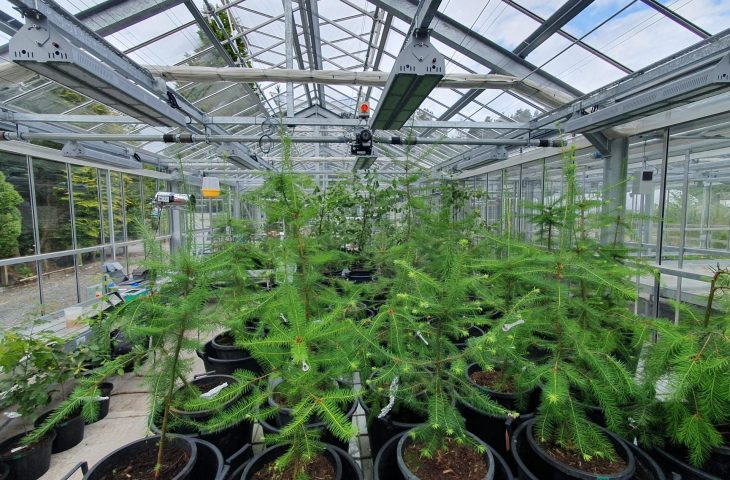
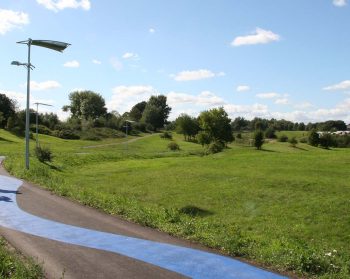
Forest Research has published new resources to support creating green spaces, treescapes and woodland on previously used land.

Horticulture and landscaping businesses are being asked to take part in a survey to strengthen the detection and reporting of plant pests and diseases and support the long-term resilience.
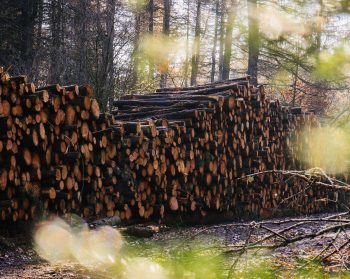
Forestry and timber businesses across the UK are being asked to take part in an annual survey programme to collect data about the UK timber industry.
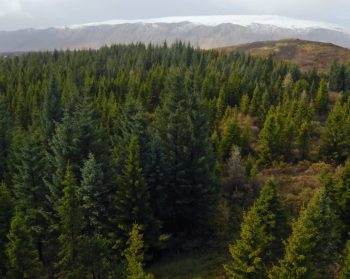
Researchers have set up a network of nine large scale experiments across the UK to test the suitability of 17 tree species as potential alternatives for future commercial timber production.
Explore the Climate Change Hub – the UK’s leading source of guidance on forestry adaptation and mitigation. Find practical advice, resources and case studies to support decision-making and build forest resilience.


How Forest Research worked with Scottish Forestry to identify the tree species that could future-proof Scotland’s forests against pests, disease and climate change.
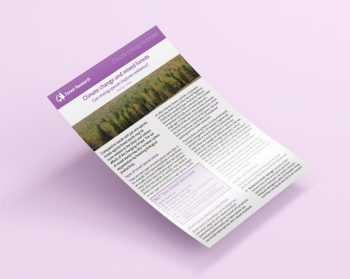
Discover Forest Research’s Climate Change Factsheets – clear, evidence-based guides to help landowners, practitioners and policymakers adapt forests for the future.

Plan smarter, grow stronger. Senior Climate Change Scientist Tom Locatelli explains how ForestGALES helps foresters tackle wind risk and build resilient woodlands in Great Britain, and beyond.

Find out how a natural capital approach is being used to inform tree planting at Blenheim Palace through a Woodland Water Code pilot project.

Imagine a job where every day is different, where science meets policy, and where your work makes a real impact. Mariella Marzano, Principal Social Scientist, tells us why she loves her role at Forest Research.

Detection dogs have been used in the UK to successfully identify tree disease, helping track down the deadly tree pathogen Phytophthora ramorum.
Work at the cutting-edge of environmental science research with Forest Research, Great Britain’s leading organisation for forestry and tree-related research.

Learn how Ash Dieback is impacting Great Britain's native ash trees, and discover resources to help slow its spread.
Understand the threat of Oak Processionary Moth to the country’s oak trees and access key information on its management and control.
Explore this detailed resource with information on common tree pests and diseases, from Acute Oak Decline to the Asian Longhorn Beetle.
Access a detailed database on information on over 60 tree species that are either widely grown in British forests or which could play an increasing role in the future.
Explore ForestGALES, a computer tool that assesses wind damage risk to forests in Britain, allowing comparison of different silvicultural practices.
Discover vital insights about Britain’s woodlands through the National Forest Inventory (NFI), a comprehensive programme offering up-to-date data on forest size, distribution, health, and biodiversity.
We carry out research to develop a better understanding of the ways in which trees and woodlands can benefit society
Chemical analysis of plant, water and soil samples, testing of plant stock quality and tree assessment products
The Tree Health Diagnostic and Advisory Service provide advice and where possible diagnosis and identification of tree pest and pathogen
By analysis of DNA extracted from samples, Forest Research can identify the presence of cryptic or reclusive species.
The Land Use and Ecosystem Services Research Group provides services to the forestry and environment sectors.